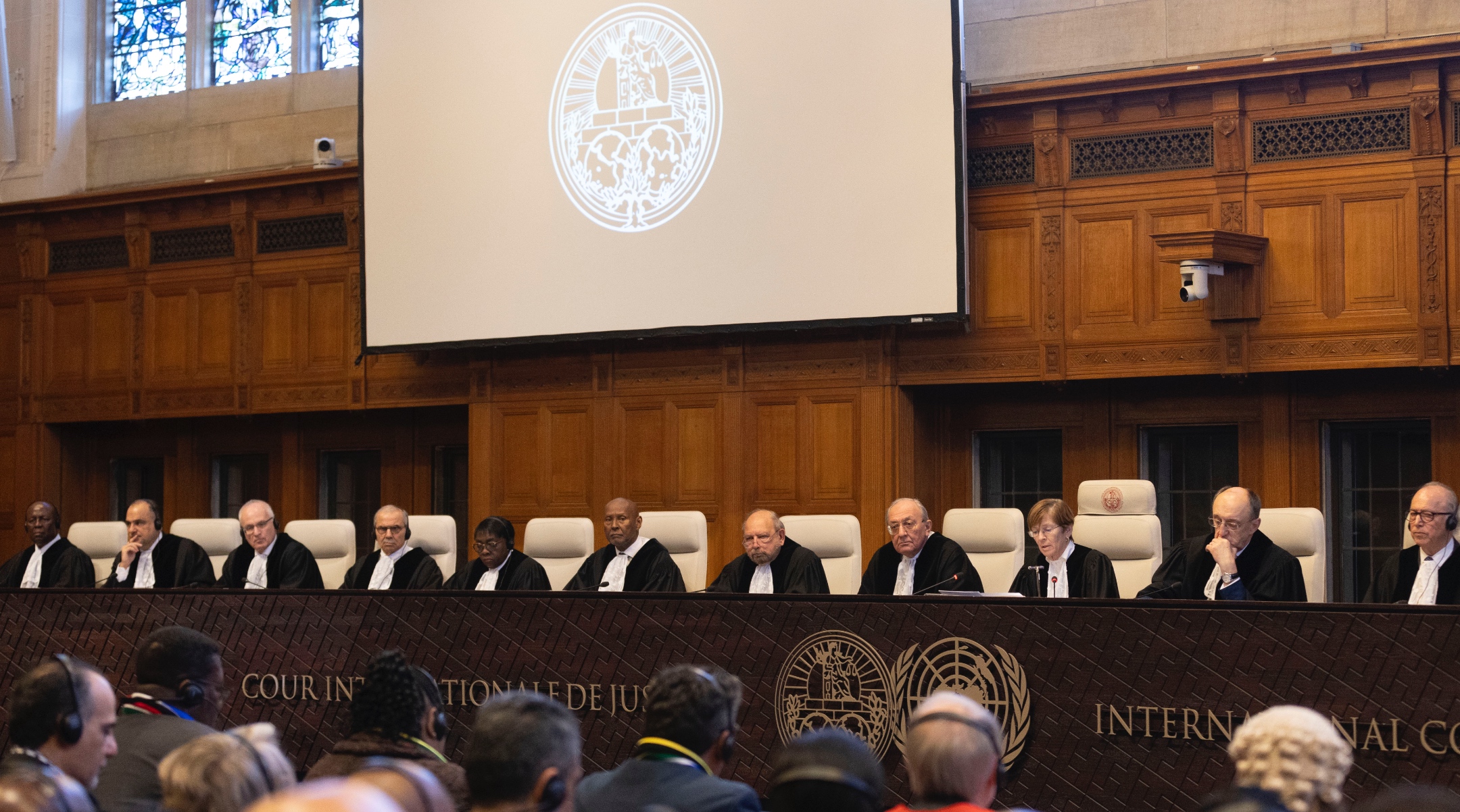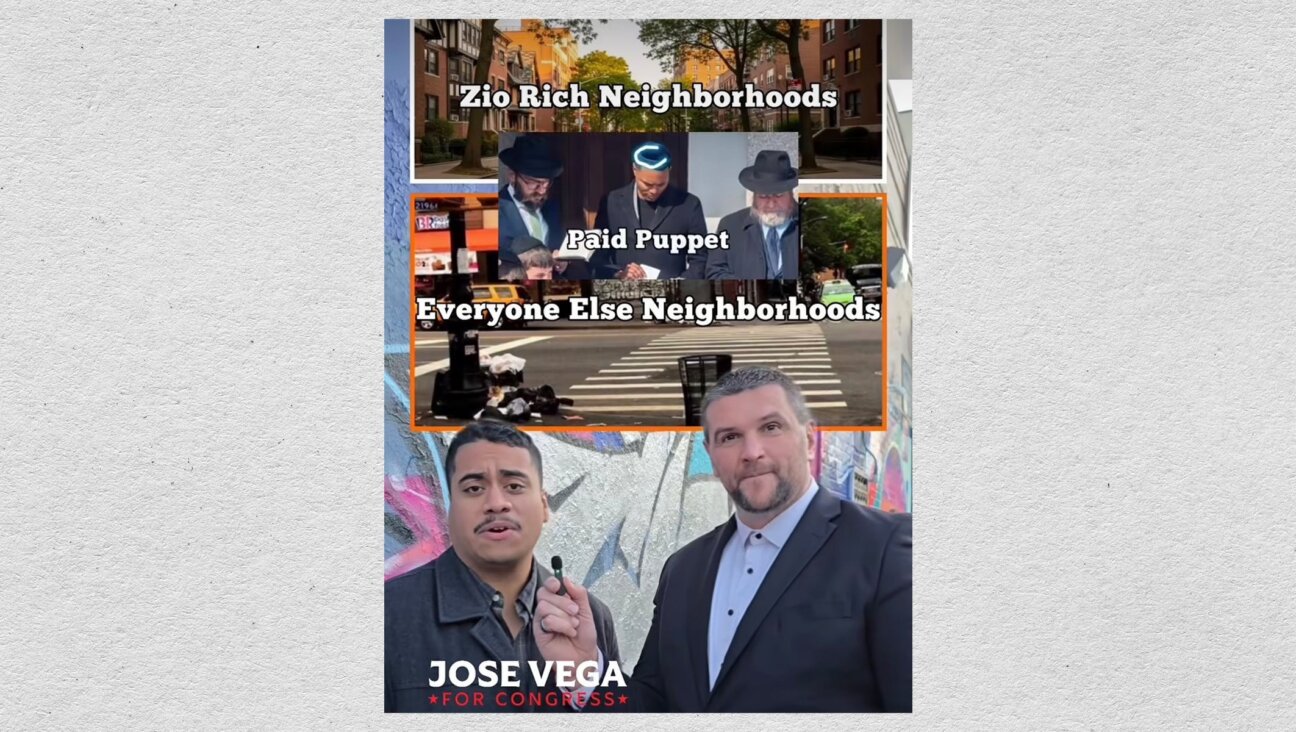International Court of Justice orders Israel to halt its Rafah operation
There is no military mechanism to enforce the ruling absent a resolution by the U.N. Security Council

The International Court of Justice (ICJ) delivers an order on South Africa’s genocide case against Israel in The Hague, Jan. 26, 2024. Photo by Michel Porro/Getty Images
(JTA) — The International Court of Justice ordered Israel to immediately halt its military operation in Rafah, in a largely symbolic ruling that will likely ramp up diplomatic pressure on Israel in its war against Hamas.
The ruling, handed down in The Hague on Friday, came at the behest of South Africa, which brought charges of genocide against Israel in the ICJ last year.
In a ruling on the case in January, the court said South Africa had a right to bring the charges and that the Palestinians had a plausible case to warrant protection from genocide, but did not order a stop to the fighting. Rather, it chose at the time to withhold an order while it assessed what Israel was doing to wind down its military operations and facilitate the entry of humanitarian assistance.
Friday’s ruling went further.
“Israel must immediately halt its military offense and any other action in the Rafah governate which may inflict on the Palestinian group in Gaza, conditions of life to bring about its physical destruction,” said Nawaz Salam, a Lebanese jurist who is currently the president of the ICJ, the United Nations’ top court.
In a filing earlier this month, South Africa said that Israel’s operation in Rafah was deteriorating conditions for Gaza Palestinians — who now face a growing risk o0f famine as the fighting has led to border crossings being closed. The court agreed with South Africa.
“The court observes that the concern expressed in its decision communicated with the parties on Feb. 16 2024,” it said with respect to the developments in Rafah, have materialized and that the humanitarian situation is now to be characterized as disastrous,” Salam said.
The court also ruled that Israel should fully open a border crossing into Rafah to allow in humanitarian assistance and ensure unimpeded access to any international investigators. It told Israel to report back to the commission on June 24.
All votes on the 15-seat court Friday were 13-2, with the sole dissenters being Aharon Barak, the former Israel Supreme Court chief justice who is the country’s appointee to the court for the purposes of this case, and Julia Subtend, a Ugandan jurist who also opposed the court’s earlier rulings agreeing to consider South Africa’s petition.
There is no military mechanism to enforce the ruling absent a resolution by the U.N. Security Council, where the United States, which has opposed South Africa’s ICJ actions, holds a veto.
But the ruling promises to increase diplomatic pressure on Israel. The chief prosecutor at another Hague-based U.N. court, the International Criminal Court, this week said that he was seeking an arrest warrant for Israeli Prime Minister Benjamin Netanyahu and Defense Minister Yoav Gallant as well as three leaders of Hamas, the terror group that has controlled Gaza and that launched the war on Oct. 7. The ICC tries individuals while the ICJ tries nations.
Netanyahu says that the final battalions of Hamas’ fighting forces in Gaza are sequestered in Rafah, and that ending the threat posed by the group requires the military operation there, which began earlier this month. The Biden administration opposed an invasion of Rafah due to the more than 1 million refugees who had fled there — many of whom have now evacuated the city.
Lately, consultations between top Biden officials and the Israeli government have tamped down those tensions, and Israeli reportedly has changed its tactics. Meanwhile, the humanitarian crisis continues unabated, and Hamas and other forces continue to fight with Israel in parts of the enclave that Israel had previously said were cleared.
The Biden administration wants a temporary ceasefire to facilitate the release of the 120 or so hostages still held by Hamas, a goal shared by many Israelis, including families of some of the hostages. But Hamas has rejected proposals put forward by the United States and Israel, demanding a permanent end to the war, which Israel opposes. In the face of that deadlock, Israel’s government has pressed ahead with the fighting in Rafah.
This article originally appeared on JTA.org.















